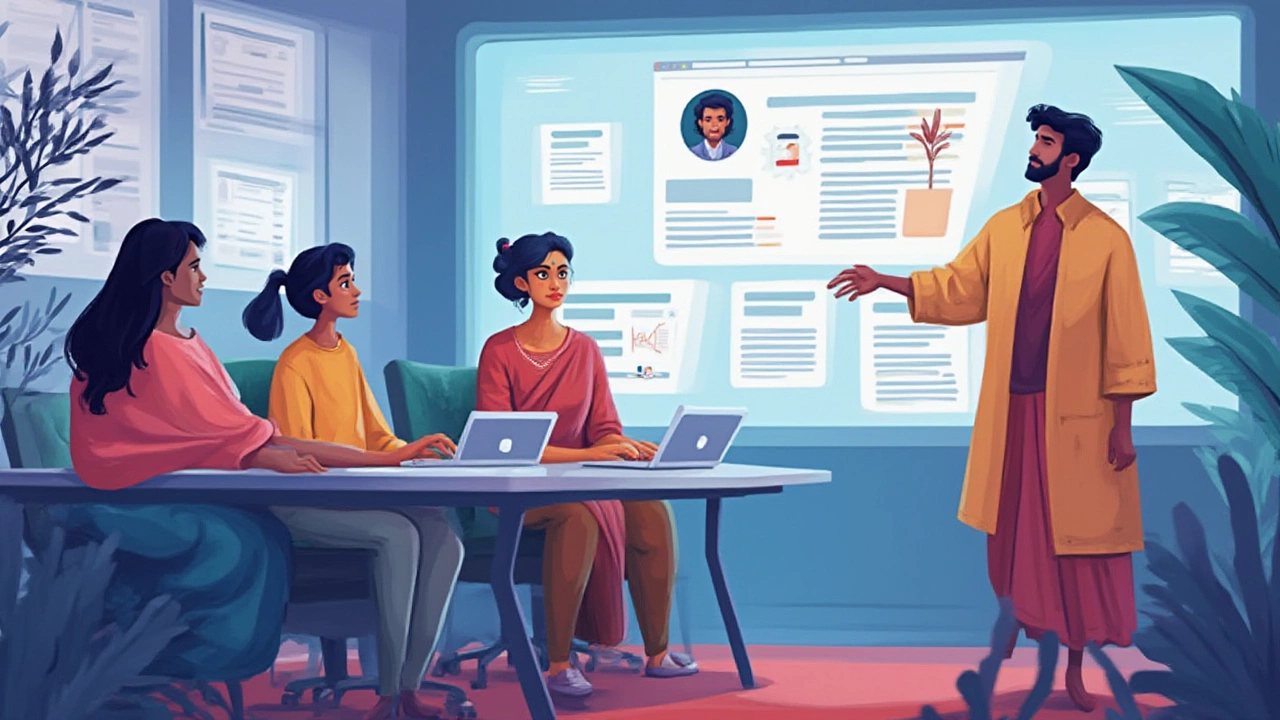Flashy logos, big university names, and a shiny PDF you can add to LinkedIn. That’s what draws a lot of people to Coursera certificates. But behind all the fancy branding, is a Coursera certificate actually recognized by employers and schools? Plenty of folks in Auckland (my backyard), Sydney, New York, and beyond are wondering: can an online badge really change your career path, or is it just digital wallpaper?
The Truth Behind Coursera Certificate Recognition
Dive into any LinkedIn discussion about online learning, and you’ll spot debate: some claim certificates helped them land interviews, while others swear they were just ignored. So, what’s the real story? Coursera works with powerhouses like Google, Meta, Stanford, and Yale, letting anyone take their courses from home. Each certificate shows you passed assignments and met course requirements—but it’s not a university degree or a government-regulated qualification.
Let’s get specific. According to a 2024 survey from Class Central, over 70% of users said a Coursera certificate was "useful" or "very useful" for their job search. Many tech recruiters today recognize names like Google Career Certificates—Google’s IT Support, Data Analytics, and UX Design courses have become modern fixtures in entry-level job ads. Don’t believe just stats? If you scan Indeed or Seek ads for tech support or IT roles, you’ll see “Google IT Certification (Coursera)” listed right next to traditional diplomas.
Still, it’s worth pausing before you whip out your credit card. Human resources departments don’t really treat Coursera certificates like university degrees. The recognition is informal—it’s a signal of personal drive, not a golden ticket. If you’re aiming for regulated professions (lawyer, nurse, engineer), Coursera won’t meet licensing requirements. But for jobs in tech, marketing, business, and data, recruiters say seeing a Coursera certificate is more respected in 2025 than it was only a couple of years ago.
Where do these certificates make the biggest splash? Tech, digital marketing, and business analysis. In those fields, practical skills matter more than degree stamps. Employers want proof you can use Python, wrangle spreadsheets, or set up Google Analytics. The combination of a degree and a Coursera certificate can impress, but even if you don’t have a degree, a well-chosen Coursera course (especially from a famous partner like Google or Meta) is a real foot in the door.
Here’s a quick table comparing how certain Coursera certificates stack up for recognition:
| Certificate | Field | Common Employer Response |
|---|---|---|
| Google IT Support Professional | IT & Technical Support | Often listed in job ads; Good for entry-level roles |
| Meta Social Media Marketing | Marketing & Social Media | Reputable, especially in agencies/startups |
| IBM Data Science Professional | Data Science & Analytics | Valued for junior/associate roles |
| Yale’s "The Science of Well-Being" | Personal Development | Good for conversation, not for CV impact |
Bottom line? Coursera certificates are recognized, but how much they matter depends on the field and company. As years go on, that informal recognition keeps ticking upwards because employers like to see self-motivated, up-to-date candidates.

How to Make a Coursera Certificate Work for Your Career
It’s tempting to just grab any trending course and expect instant results. But, like most things, a little strategy pays off. If you want your Coursera certificate to actually make a difference, you’ve got to match it to your goals.
First, pick certificates that have strong industry partners: think Google, Meta, IBM, Amazon, or leading universities. These names carry weight on a CV or LinkedIn because they’ve built recognition and trust around their programs. A general course on “business” looks vague, but a Google Project Management Certificate? That stands out when you’re switching careers or trying to break into new fields. In Auckland, you’ll even find local recruiters calling out Google or Meta certificates in entry-level digital job postings.
Second, showcase what you learned. Don’t only stick the PDF at the bottom of your CV. Add the course skills under your "Skills" section. Share projects, code, files, or even personal websites you built for the course. New Zealand’s job scene can be competitive—and across Australia, the US, and the UK, too. Employers want proof you can do the work, not just that you passed some quizzes.
Third, don’t expect magic from one certificate. Stack your learning. Lots of folks use Coursera to build a portfolio: combine three related certificates (like Data Analysis, Python Programming, and Excel Skills) to look more attractive for data jobs than just a single "general" credential. It’s more effective than spending months on random courses that don’t add up to a story about your career path.
Want insider tips from recruiters? Here are a few:
- List Coursera certificates under "Education" if they’re from recognized partners; under "Professional Development" otherwise.
- Write a short summary of the main project you completed for each certificate.
- Keep your LinkedIn profile's "Licenses & Certifications" up to date with verifiable Coursera links.
- Use keywords from the certificate in your job applications—if the course focused on SQL, feature that in your CV and cover letter.
- Be ready to talk about the coursework in interviews—share what challenged you, what you enjoyed, and what you’d like to learn next.
If you’re in a field that’s slow-moving or tightly regulated—like law or medicine—Coursera won’t replace formal education. But if you’re aiming for startups or fast-changing digital sectors, those certificates act as a fast track to interviews, projects, and conversations with hiring managers.
For people contemplating postgraduate studies, universities in New Zealand and Australia don’t count most Coursera certificates for credit. But there are exceptions. Some US-based online programs, like Arizona State University’s Global Freshman Academy, offer credits for certain Coursera courses—still, these are rare and usually clarify on application sites. Double-check before banking on these for further study.

Maximizing the Real Value: Beyond the Certificate PDF
Let’s get honest: not all Coursera certificates are created equal. The difference comes from what you do with the knowledge, not just the paper trail. Employers, especially in tech, want to see curiosity, problem-solving, and the guts to teach yourself something new. Coursera is perfect for that.
Set goals before you enroll. Are you reskilling? Pivoting industries? Building up for side gigs? Choose courses that align directly with those intentions. A focused Coursera journey beats a handful of random certificates every time. Ask yourself: if you saw your own CV, would you get the story of who you are and what you can do? If not, adjust your course path.
Here’s something plenty of new learners don’t realize: Coursera’s best value comes from its projects and peer-graded assignments. Don’t just watch the videos—put your own spin on the ideas. At the end, you’ll have a real-world project to show for it. Add that to your online portfolio, GitHub, Behance, or your personal website. When employers see practical examples, they look beyond titles and PDFs.
Budget also matters, especially in 2025. Don’t pay for certificates just to collect them. Coursera often offers free "auditing" of courses, letting you learn everything for $0. Assess if you need that verification before paying. If your field is competitive or you’re making a big switch, consider the investment. Remember: a single, industry-aligned certificate with projects is worth more than five generic PDFs.
One little-known fact: Coursera partners with employers for "Coursera for Business" platforms. Companies like L’Oréal, Air New Zealand, and Novartis use Coursera to reskill employees and upskill teams. If you’re already working, ask your employer about company partnerships. Sometimes, you can study for free—or even get reimbursed for your career development.
Keep an eye on course reviews. Just because a course is famous doesn’t mean it’s up to date. User reviews on Class Central, Reddit, or the Coursera discussion forums can quickly point out which certificates actually prepare you for modern jobs and which rest on an old curriculum. Pick updated and in-demand courses for the best value.
Finally, network! Engaging in Coursera’s community forums isn’t just for techies or introverts. You’ll often meet others in your city or career trajectory—sometimes even future colleagues. Don’t shy away from asking questions or sharing career goals. In Auckland, I’ve met at least three people in tech roles who landed their jobs via contacts they made on Coursera’s course networks.
Ready to take your next step? If you find the right course, stick with it, work on real projects, and show off your new skills—Coursera certificates are no longer just digital wallpaper. They’re a credible sign of your ambition, and in the fast-changing world of work, that’s got real weight.

